Stephanie Beatriz brings queer representation to ‘In the Heights’ and bids farewell to ‘Brooklyn Nine-Nine’
In the Heights star Stephanie Beatriz tells us something we don’t know about the joys of disappearing into character.

Stephanie Beatriz was already bound for a momentous summer. First, June brings the much-anticipated release of In the Heights, director Jon M. Chu’s splashy, big-screen adaptation of Lin-Manuel Miranda’s Tony Award-winning musical. Beatriz co-stars in the film opposite Daphne Rubin-Vega as brassy lesbian couple Carla and Daniela, who run the beauty shop in the story’s vibrant Washington Heights neighborhood. Then, in August, the actress-producer, best known for portraying badass bisexual NYPD detective Rosa Diaz on the long-running NBC comedy Brooklyn Nine-Nine, begins her last shift in the role as the series premieres its eighth and final season.
Between doing press for In the Heights, and production for Brooklyn Nine-Nine, Beatriz was already pretty busy when she and husband Brad Hoss announced another project in the works: their first child. “The timing is ridiculous,” says Beatriz with a laugh, a bubbly contrast to the hilariously stone-faced Rosa Diaz. “We’re shooting our series finale on Brooklyn Nine-Nine next week. It wraps on, I believe, June 10th. The film comes out on the 11th, and I just announced that I’m pregnant. It’s a very strange, amazing, incredible time, but one that’s very tumultuous and full of change for me and my family.”
Change has been a constant for Beatriz and her family since she was very young. Born in Argentina to a Colombian father and Bolivian mother, her family immigrated to the U.S. before she was three years old, settling in Texas, where she didn’t always feel she fit in, despite growing up very much a precocious American girl. “I wanted to get out of Texas, because I wanted to see what else was out there,” she recalls of her decision to attend Stephens College in Missouri. “So I moved to the most logical place, which was the Midwest. After the Midwest, I was like, ‘I think I get it.’ I did have the Midwest college experience, and then I moved to New York City.”
In New York, Beatriz found a new sense of community and family among other artists. “Many of the friends that I made in the first couple years in New York, I’m still friends with,” she says. “It was a very lean time — a.k.a. we were hella poor — and everybody tried to take good care of each other. When somebody was flush, it was a big pasta dinner at someone’s house, or if somebody got a job, all of us were celebrating for each other, with each other. But I also felt like New York’s a really tough city, and I think it fit some people better than others, and for me, after a while, I realized it wasn’t quite the right fit. I loved being there, I loved the experience of it, but I just knew that it wasn’t quite the right fit for me.”
As opposed to “trying to stick a square peg in a round hole,” Beatriz decided to move to L.A. and has lived there since. In the City of Angels, the performer found not only a home that fit, but acting roles to suit her chameleonic talents. From her signature Nine-Nine role and breakout guest appearances on Modern Family as Gloria’s secretly saucy sister Sonia, to voice-over roles in animated hits like Bob’s Burgers and Bojack Horseman, she could claim a formidably wide lane in quirky TV comedies.
Yet Beatriz also lights up the occasional serious feature, like indie Short Term 12, or the powerful sexual assault drama The Light of the Moon, which she starred in and executive produced. Intrepid in the face of new challenges, she takes on her first onscreen musical role with In the Heights, singing and dancing alongside some of Broadway’s best. And she’s ready to share the joy of what they created with the world.
“I’m so excited for people to see this in theaters that I bought out most of a small theater for my friends to see the movie,” she says. “I was like, ‘I really want you guys to see it in a movie theater.’ So, we’re all going, on Friday, together as just a friend group, and everyone’s excited to see it and we’re all excited to be together, and I think it’ll be really fun. I can’t wait.”

METRO WEEKLY: First, I have to congratulate you on your pregnancy news.
BEATRIZ: What?! I’m pregnant?!
MW: No? You’re not?
BEATRIZ: No, I am. Thank you. [Laughs.] Can you imagine if it was a long con just for this interview? I set this up specifically for André and his interview. Thank you. That’s really nice. We’re very excited and nervous and terrified, but excited and nervous and terrified.
MW: In the Heights has so much to say and show about community as a family, the family that you’re born to as well as your chosen family. What is the message that you take away from the film about the families that we make and love?
BEATRIZ: Well, you actually said it best, the families that we make and love, because some of us are lucky enough to be born into families that accept and love us as who we are, and some of us have to find our way to those families. But I think for those of us lucky enough to experience unconditional love from, whether it be blood relatives or friends or people that you’ve invited into your life that love you unconditionally, having that community, that family, that chosen family, really buoys you up as a human being.
The thing we all recognized after the last year and a half of struggling globally through this really difficult time was how much we really rely on human connection and other human beings. And so this film, it’s so strange, the timing of it, but I guess it’s a universal and timeless theme, this idea of family, connection, humanity, and how much we need and rely on each other. I’m so excited for audiences to see this film at this moment in time.
MW: Carla and Daniela obviously are a family unto themselves. Something I appreciate about their part in this story is that they’re fixtures in the community. They’re not in need of refuge, they provide refuge, they provide comfort to people.
BEATRIZ: Many times in media we are presented stories that are about queer characters that automatically connect with dramatic events or sometimes traumatic events, and just one way of seeing people is not all that they are. For example, as someone who is bisexual and grew up with not that much varied bisexual representation in film and television and media, what I thought of as bisexual was, “Oh, no.” I had this idea that, “I can’t possibly be this, because this is over-sexualized, hyper-sexualized, villainous, duplicitous. I’m none of those things, and yet I feel that I am and identify as bisexual, and yet the characters that are presented to me in the media that I’m consuming reflects back to me that I’m bad. That somehow, at my core, there’s something wrong with me.”
What’s really cool about [In the Heights] is that in this very subtle way, you see these characters that are this functioning, happy, loving pair that are pillars in their community, and, in each other’s company, they are the best version of themselves, and other people actually flock to them because they make other people the best version of themselves. How lovely and thrilling to have that be gently sewn into the fabric of this entire community. Abuela Claudia accepts and loves them, Usnavi accepts and loves them, all of the characters take them for who they are. There’s no judgment, there’s no questioning, there’s no, “Eew, I don’t know.”
There’s none of that, which is so refreshing to see that on film, because that’s what my life is mostly like. Most of my friends accept and love me just the way that I am, there’s no questioning or weirdness. Maybe there’s some curiosity, but there’s never any drama or trauma around it for me in my chosen family. In its subtlety, it’s so special.
MW: It seems subtle to me because I wake up with a man, but it won’t be so subtle to everyone that we meet Carla and Daniela waking up together, which is really great.
BEATRIZ: Waking up together, yeah. It’s so lovely to see. It’s so, “Oh,” it establishes it so perfectly, so beautifully, so quickly, and so clearly.
MW: The film diverges from the stage musical in several ways that we won’t spoil here, but one way is that Carla and Daniela were not presented as a couple in the stage show. So, especially as somebody who identifies as queer, how important was that change in the film for you? Would you have been as interested if Carla and Daniela were cousins or best buddies?
BEATRIZ: I didn’t know that that decision was made until I was already cast, so it was something that I was really excited about once I heard that Quiara Alegría Hudes, the writer [of both versions], was thinking about this idea that, “Well, they’re already partners at work, what about if they were life partners as well? They’re such a unit.” It made sense to her in this new iteration of the story to make them a couple. And, like I said, I was already cast. I wanted to be a part of this film really badly because it is such an incredible piece of art, and it was like a dream to think, “I could work with Jon M. Chu.” I just think he’s such a special, incredible filmmaker. I saw Crazy Rich Asians too many times in the theater. I just think what he does is so special, and only he does it that way. He’s got such a magical lens through which he views the world. And so when I found out that Quiara was thinking about making this change, I was so excited and so supportive, and just fucking pumped that there was a possibility that they might be a gay couple, and the fact that they ran with it, it speaks volumes to the filmmakers, the producers, everyone at Warner Bros. that trusted that [the] storyline fit in this world.
MW: Also, you’re trusting the audience — Lin-Manuel’s audience, the audience for musicals, and for this story of Latino culture. Have you done a musical before?
BEATRIZ: I did a lot of musicals in college. That was probably the last time. I think that that’s the last big chunk of musicals that I’d ever done. To be honest, I felt really intimidated by it. But just because you’re intimidated by something — I’m staring at my shelf, my Dolly Parton book is there, sitting on my shelf, and she is such an inspiration to me. People told her from the time that she was little, “You’re just a poor kid from Pigeon Forge. What are you doing?” And she was like, “No, I’m more than that.” And I think that there’s something about that belief in yourself that can transcend your insecurities, and push you toward the thing that is calling your name, even if you’re trying to shut it out and say, “I don’t know, I don’t deserve that, I’m not worth that, I can’t do that, I’m not as good as everyone else.” If you can quiet those voices and listen to the one that’s saying, “Yes, you belong. Yes, you’re worthwhile. Why would you think that you were anything other than that?” Then sometimes you can book a big movie musical.
MW: How much did it help that for a lot of the work you were doing, you’re in partnership with a master of musical theater in Daphne Rubin-Vega?
BEATRIZ: I found out that she was cast the same day that I found out that I was cast. My agents told me on the phone, “Daphne Rubin-Vega is going to be playing Daniela,” and I lost my shit. I mean I absolutely lost it. I had pictures of her all over the back of my bedroom door when I was a teenager. Rent was one of the first times that I really understood that there was a possibility that I, too, could be an actor, that I could do this as a profession and succeed, because she was so phenomenal in that role, and it was this worldwide moment where her talent — the talent of everyone in that show — but her talent and what she brought to the role by being herself, everyone saw it. Everyone acknowledged that that was a seminal moment in American theater and in American theater history, and it just made me feel like it was possible for me, too. She was an idol of mine.
I was a fucking mess the first day of rehearsal. I was just like, “Oh, no,” because I was so — I don’t want to say intimidated, because she’s not an intimidating person, but I was just so nervous to meet her. It was meeting one of my idols. And then to work with her was so amazing, awe-inspiring, eye-opening. She has a very different process than I do, but I learned a ton by watching her. She’s incredibly professional, and her voice sounds just amazing in this film.
I’m so excited for her to have this moment on film because she is so good, and she’s so good in this role. It’s really amazing. It’s like watching a priestess or something at work. You’re just watching something that you’re like, “I don’t understand how you’re doing this, but I can’t take my eyes off of you.”
MW: The word that came to me as you were describing that was “undeniable.”
BEATRIZ: Undeniable, yes. She’s an undeniable talent, presence, human being. She’s incredible.
MW: Another way the movie diverges from the stage show is that it’s updated to include more of the Dreamer movement, which, on one hand, you really couldn’t tell this story right now without including that. But on the other hand, companies can still do the show and that’s not necessarily included. How do you feel about the fact that that’s in there, and that that conversation is going to be a part of the movie for as long as the movie exists?
BEATRIZ: I love that it’s part of the conversation about the film. I think Quiara is such an incredible writer, all of her work is just amazing. Her work in theater is incredible. My Broken Language, her book that’s out now, is incredible. She’s just a phenomenal talent, and she’s also very, very, very smart. And I think the fact that she layered that in — and really, this is total spoilery — but where it is in the film is also part of the genius around it, because by the time that you realize that one of the characters that you’ve fallen in love with is a Dreamer and might not have access to the same dreams as everyone else, you are invested in that character, you are in love with that character, you want to see that character succeed. And, in many ways, it’s heartbreaking to see that there may be limitations on that character’s future and dreams.
That’s the kind of stuff that art does really, really well. It can create these moments of empathy for people you’ve never met, who actually don’t exist. These are made-up people. But this art has created this moment of empathy for this made-up person and allowed you to connect with them, and so maybe that art might have an effect on how you view the world that you live in, and the way that you function in that world and whether or not you want to help create societal change for people who might be going through the thing that you empathized with in the film. I think that that’s one of the coolest things that art does. The waves of art are not just loving a movie and watching it over and over. That is one wave of it, but another wave of art is changing the way that you see the world and the people in it.

MW: Because we’re on the subject of immigrants, I have to mention that I am married to an Argentinian, but I don’t know Neuquén, which is where–
BEATRIZ: Where I was born.
MW: Where you were born. How long did you live there? When did you move to the States? Do you get back to Argentina?
BEATRIZ: You know what’s funny is I don’t know Neuquén, either. My father is Colombian and my mom’s Bolivian, and they were moving around quite a bit all over South America when I was little. I was born in Argentina, my sister was born in Venezuela. They’ve lived everywhere. They’ve lived in Brazil, they’ve lived in Colombia. So, the short answer is I haven’t been back since I was two-and-a-half years old. First, because, when I was a kid, it was expensive to travel to South America, and so I just never had the opportunity. My family didn’t have the extra money to travel. I didn’t meet most of my grandparents until I was 12. That was the first time that I went to Colombia, and then the second time that I went to Colombia was two years ago.
Some of it has been because of not having the opportunity to go because of finances, but some of it, in the last couple years, has been work. But I would love to have the time to spend with more of my family in South America, and they’re all over the place, because it is such a big part of who I am, and it’s such a part of who my parents are, and what they left behind to be able to come here — the United States — to allow my sister and I to pursue whatever dreams we wanted to pursue. That was a big part of them moving to the U.S., was realizing that for their kids, for them, at that time, it felt like, “This is the best decision that we can make for our family and for the future of our family, is to move so many miles away from all of our safety nets and start over.”
And I think that says a lot about the risks and the love that my parents had for us, that they were willing to take that giant leap. I mean as somebody who’s expecting a baby right now, I cannot imagine. I think my sister was something ridiculous like 19 days old when they left Venezuela to move to the United States. I cannot imagine moving to a whole new country with a newborn, but my mom did it because she was like, “Nope, that’s the decision that we want to make for our family to give them a better future.”
MW: It takes nerve.
BEATRIZ: Yeah, man, a lot of nerve, a lot of bravery, and a lot of trust.
MW: Did you grow up with a sense of being in-between the immigrant experience and the homegrown mentality?
BEATRIZ: Totally. Because from the time that I was a kid, I felt really American because I came to the U.S. when I was, like I said, two-and-a-half. But, at the same time, I wasn’t a U.S. citizen until I was 18. And where I grew up, it was predominantly a white area, I didn’t see a ton of — I’m going to use the word “diversity” — but I didn’t see a lot of diversity. I didn’t know many Latinos outside of my mom’s friend group, who she met through church, and sometimes work. And they were Latinos from all over the place. They connected because they spoke Spanish and they were from either Central or South America or the Caribbean, and they missed home and they found home in each other. Not unlike the film.
MW: That’s very much like Washington Heights.
BEATRIZ: It’s totally that. People that connect over these things that feel like home to them. So that’s how you build your extended family in the United States. That’s how my parents built it.
MW: Another story that really resonates for me in In the Heights is Nina’s, the idea of somebody who achieved something by getting out of the neighborhood, but then entered spaces where they didn’t feel welcome or invited, and didn’t always succeed the way they wanted to. I feel like everybody has some version of that in their lives. Have you walked in those shoes, or is there some other character in the show that really resonates with you?
BEATRIZ: For me, it’s really a mix of Nina and Vanessa, because I identify with parts of both of their journeys. I really get the Nina storyline of being the kid [with] a lot of pressure to succeed when you know that the hopes and dreams of the people that you love and respect are on your shoulders. It’s a lot of pressure. And it can create internal pressure that you’re putting on yourself, and it can create a lot of shame and it can create a lot of expectation. And then I also really identify with Vanessa because there was a big part of me when I was in high school in Texas, that I was like, “I gotta get out of here, man. I gotta get out!”
And I love Texas, my heart will always be there because I grew up there, but I just felt like, “I know there’s more kinds of people, I know there’s more art, I know there’s more things, I know there’s more experiences to be had,” and I wanted out. And everyone in my high school was going to four different colleges all in the state, and I was like, “Absolutely not. Hell no, I’ve got to get away from all these kids that I went to high school with that all have the same ideas about the same things. I just gotta get out.” I felt so stifled.
So I identify with that feeling of wanting to be free of what feels like a really constricting environment when you’re a kid, but then I also get the feeling of, “Well, that’s also what made you and what shaped you and helped you become the person you are today.” So, I’m extremely grateful for the experience of growing up the way that I did, but I also needed to leave, badly. I identify with both, especially the female characters in particular, I really see myself in both of them.
MW: To swerve a little, let’s talk about The Light of the Moon, which I thought was really good. Besides the fact that it’s a really complex part, why did you want to make a film like that?
BEATRIZ: I had never read anything before that talked about sexual assault in the way that the script for The Light of the Moon talked about it. Many of the stories that I’d seen about sexual assault were fantasy stories in which the survivor is able to revenge the person who committed the assault on her. And the reality is something much darker, which is that many sexual assaults are never even reported. The ones that are, there’s often no justice, even when the evidence is so clear, and it’s so clear what happened and who took advantage of who, and justice just doesn’t happen. I don’t know any other way to put it. Most of the time, nothing happens.
And what I thought was so interesting about that script was that not only did they address that, but they also address, well, what happens after? What happens to the person that is left holding this experience? What happens to their brain? What happens to their life? What happens to their relationships? How do they deal with it everyday? Because so much of sexual assault, I mean not only is it this horrible physical attack, but it’s also this attack on your sense of self, your sense of who you are in the world, and I think that’s something that has been explored further in many pieces of art that have come out since Light of the Moon — like, for example, Michaela Coel’s work.
And the person that should be centered in that is the person who had the experience, but how do they deal with themselves and the world, after that experience has caused irreparable damage to, sometimes, their body, but mostly their brain? I just thought it was such a smart script, and I was looking for something that was very, very different than Brooklyn Nine-Nine to do at the time, so I was really excited to take a meeting with Jess Thompson, the director, and I’m still so grateful that I was part of that project.
MW: Speaking of Brooklyn Nine-Nine, first I was going to ask you a combo question, Brooklyn and Modern Family, because I watched both for a while before realizing that you were playing Sonia, the sister of Sofia Vergara’s character. Visually, there’s not a lot different going on between the two roles, it’s just acting. Do you often get that, where people who know one or the other character are like, “I had no idea that was you?”
BEATRIZ: All the time, honey. All the time. In fact, one of my favorite things — and my husband and I joke about it — sometimes people will say, “You look like that girl that plays Rosa on…” Because it’s usually someone that I’m dealing with in the world, like someone that I’ve talked to in the grocery store or maybe someone that I’ve had an exchange with somewhere in public, and they’re not really sure how to manage, like they see my face and the hair, that looks right, but the voice coming out of me doesn’t sound right, and also my attitude is nice.
So, people get confused, and I think it’s because we’re so used to reality television and we’re so used to actors really playing versions of themselves. And there’s nothing wrong with that, there’s room for all of us, there’s room for all types of actors, but I think something that I like to do — and it doesn’t always fit every role — but I really like creating specific character roles. I think it’s really fun to have myself disappear into the people that I play. So, it’s very flattering for me when people are like, “Oh my God, no. No, that can’t…” And so I’m super excited for Brooklyn audiences to see In the Heights, because I think they’re going to have a little brain synapse.

MW: Yeah, Carla is not Rosa at all. I would also say that your characters tend to sound distinctly different. How do you find a voice for a character?
BEATRIZ: I think that’s part of the fun. I spent a long time, as a kid, with lots of time on my hands. My parents worked a lot, and my sister and I would often come home and watch ourselves, and one of the things that we did at home was we had this Fisher-Price recorder. It was a little tape deck, and I don’t know where we got it, but you could put a tape in and record yourself. We had a few blank tapes, but we also taped over a lot of my mom and dad’s music — sorry, Mom and Dad — but we would record ourselves doing shows, like radio shows, where we would do different voices, we would interview ourselves, we would interview each other, we just screwed around.
But, in doing that, it was us finding funny and weird voices and stuff. That was the beginning of me acting, I think, playing around with that tape recorder by myself. And I think it’s just a really fun thing for me to do voiceovers and voices, and find my way into a character through sound. It’s one of the things that was so fun about being in In the Heights, was the music and finding my way into the character musically, and basing character choices on what Lin had already written in the music. I think that’s so fun. And the musicality of language is something that I’ve always been drawn to and interested in.
MW: Brooklyn Nine-Nine is finally coming back later this summer. It’s been a long wait for people who want to see it. Right after the murder of George Floyd and subsequent protests, showrunner Dan Goor announced that he and the cast had made a donation to the National Bail Fund Network. Also, storylines of certain episodes reportedly were changed before they made it to production for this season. How do you feel about how the post-George Floyd world was addressed? Are you feeling like you’ve done enough as representatives of cops on TV?
BEATRIZ: I don’t think any of us can ever do enough to try to make the world the balanced and equitable place that it should be for everyone. I think it will take many lifetimes beyond the one that I’m living to have everyone feel as if they’re being seen and respected and loved and living lives that are truly in the pursuit of happiness in the way that we all should feel, that we all deserve to feel just by the pure fact that we’re alive, that we’re human and we have human rights. That being said, we’re a sitcom, and we’re set in a precinct. I think our show has done a really great job in the past of addressing things that we find important, with an excellent balance of being able to also continue to be a situation comedy.
For example, the episode that I directed, He Said, She Said, was about sexual assault in the workplace. We took on this pretty big thing that human beings are dealing with. And we also had a main character, Amy Santiago, reveal to her husband that she had had an unwanted sexual assault from work from a respected mentor. And yet, we’re able to tell that story and still tell it in a situation-comedy world. I think that the writers on Brooklyn Nine-Nine are really talented people. I think Dan Goor is a really talented showrunner. And I think one of the things that you’ll see this season is that we’re taking on the world as it is head-on. And sometimes that means that there will be uncomfortable conversations and uncomfortable moments in a world that’s usually full of jokes. But I think that that’s okay because I think that’s what real life is like, too.
MW: And I think the Nine-Nine audience can take it.
BEATRIZ: I think so, too. The people that watch our show are really smart — they’re really, really, really smart — and we’re lucky to have them, we’re lucky that they found us, and we’re lucky for the kismet and connection between the show and its fans. Because the fans really care about the show and the characters on the show. I absolutely think that they will really, really, really be into what we’re doing this season.
In the Heights opens in theaters Friday, June 11, and is also available on HBO Max for 31 days after theatrical release. Visit www.hbo.com.
Brooklyn Nine-Nine season 8 premieres Thursday, August 12 at 8 p.m. ET. Visit www.nbc.com.
Read More:
Tig Notaro jumps from comedy to action star with Netflix’s ‘Army of the Dead’
Ryan O’Connell on two groundbreaking seasons of ‘Special’ and writing his way to sobriety
Support Metro Weekly’s Journalism
These are challenging times for news organizations. And yet it’s crucial we stay active and provide vital resources and information to both our local readers and the world. So won’t you please take a moment and consider supporting Metro Weekly with a membership? For as little as $5 a month, you can help ensure Metro Weekly magazine and MetroWeekly.com remain free, viable resources as we provide the best, most diverse, culturally-resonant LGBTQ coverage in both the D.C. region and around the world. Memberships come with exclusive perks and discounts, your own personal digital delivery of each week’s magazine (and an archive), access to our Member's Lounge when it launches this fall, and exclusive members-only items like Metro Weekly Membership Mugs and Tote Bags! Check out all our membership levels here and please join us today!






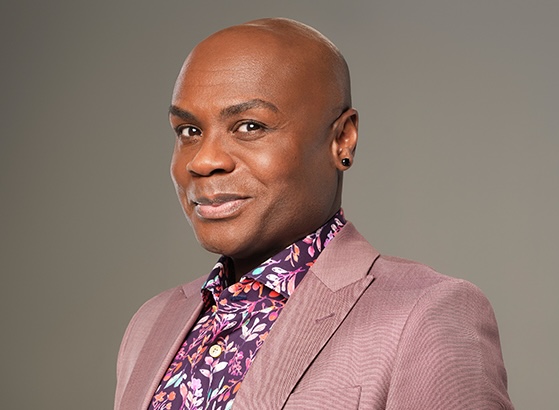
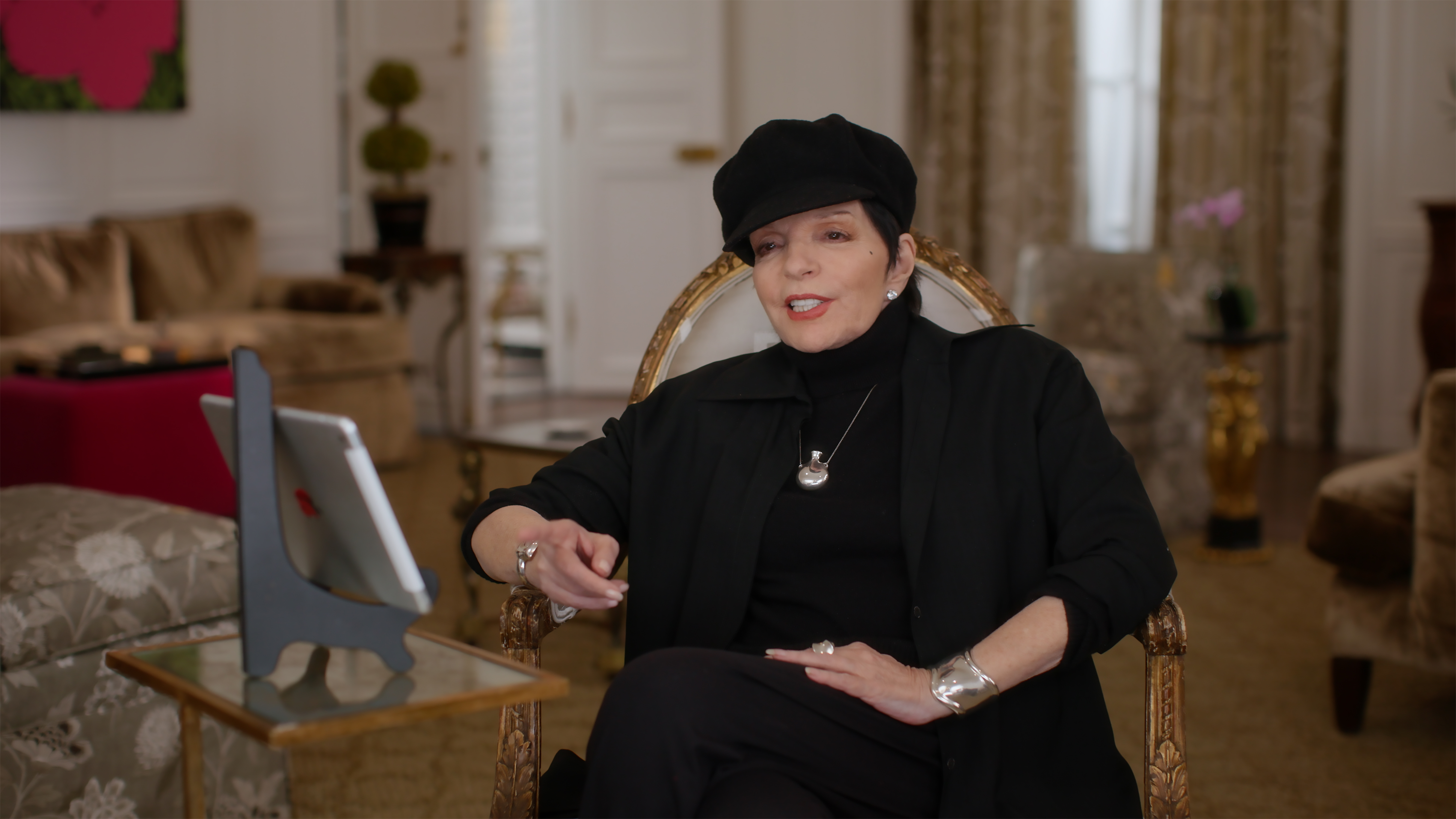
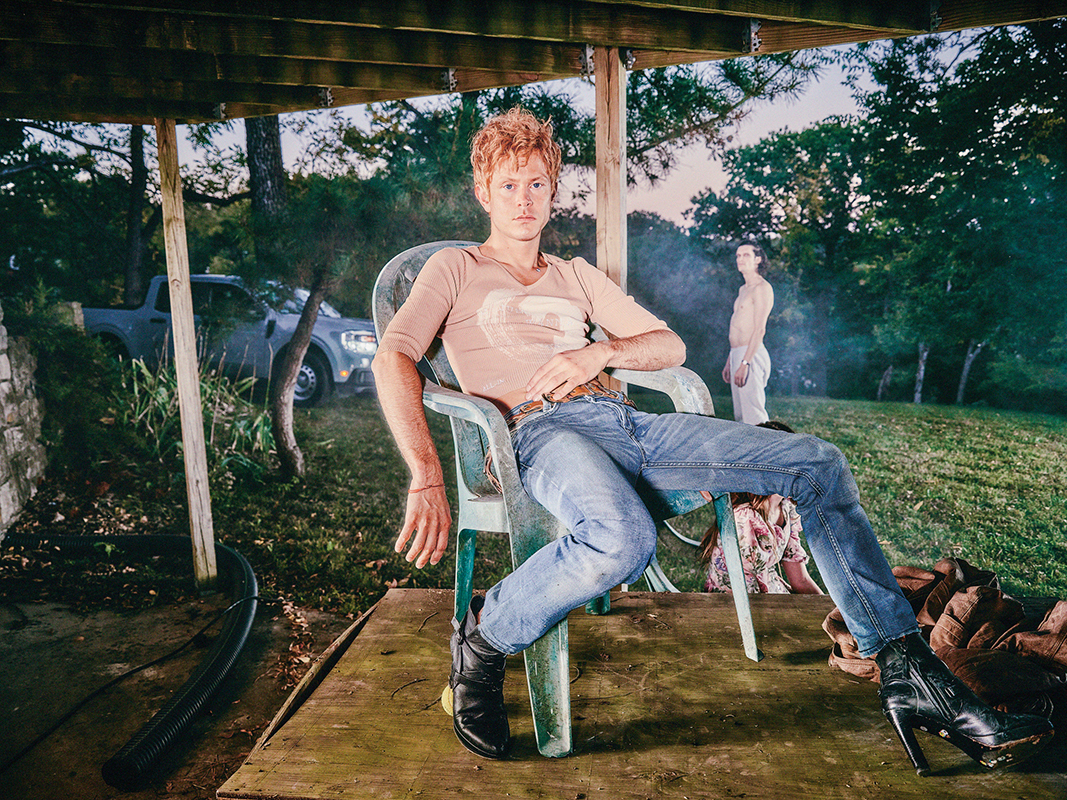













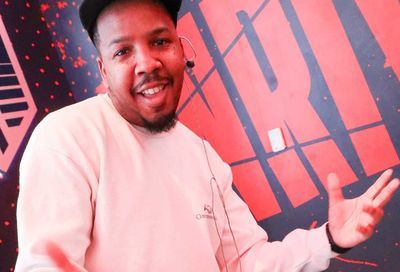
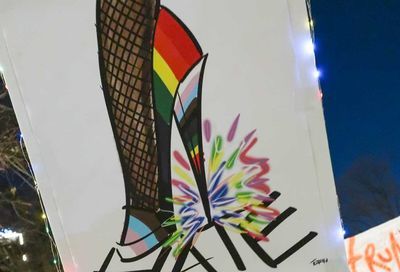
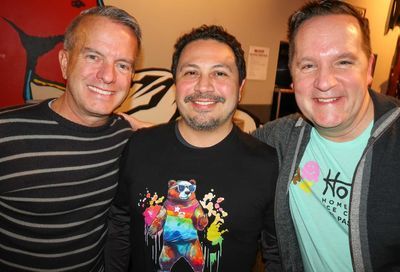
You must be logged in to post a comment.